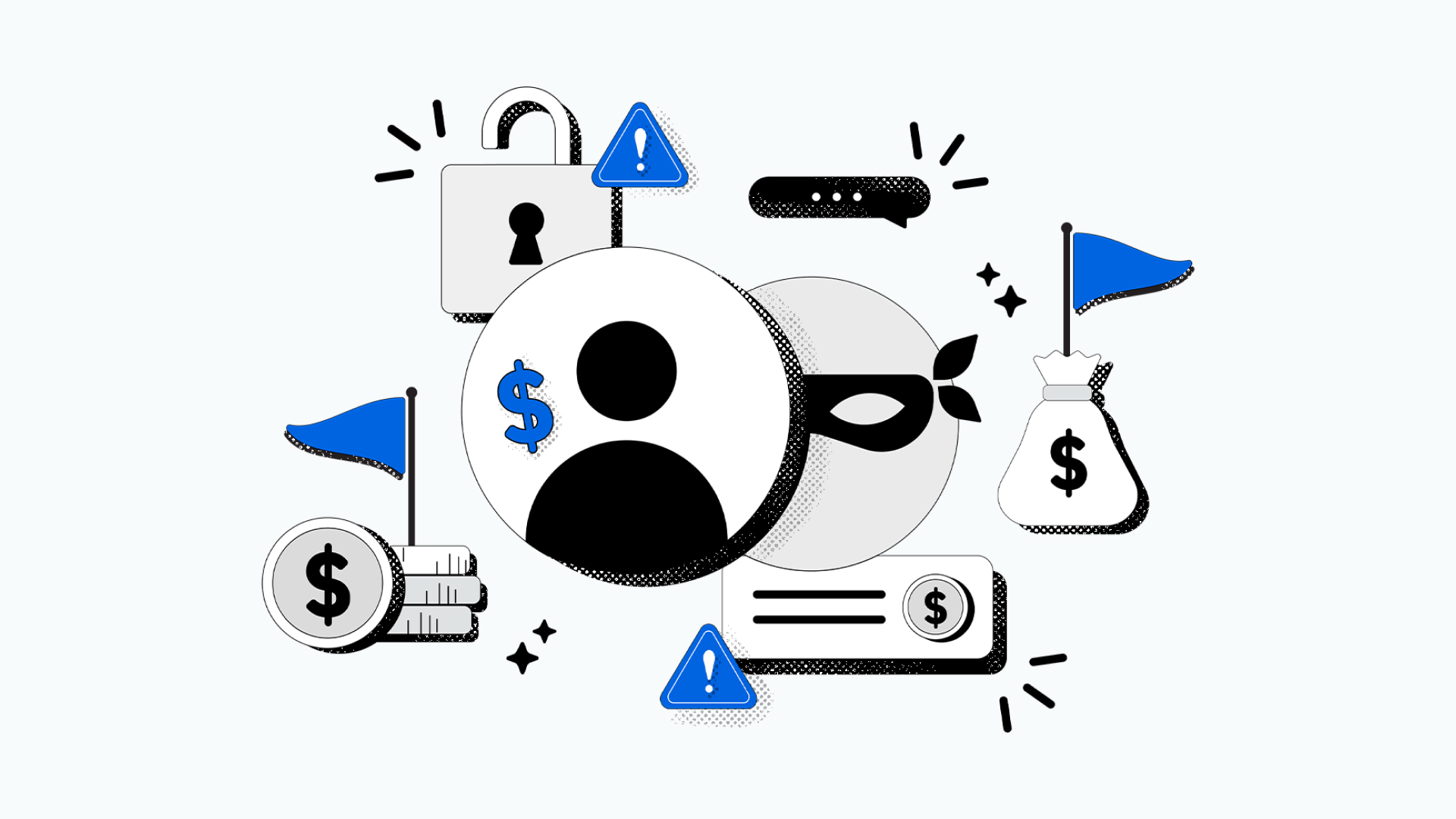PhoolPhisher
link Netflix Payment Method Scam
— Phishing scams targeting Netflix subscribers often use emails or texts that appear to be from the company. These messages create a sense of urgency, claiming there's a problem with your account, such as a billing issue or an expired membership. They trick you into clicking a link that leads to a fake Netflix website designed to steal your personal information, including login credentials and credit card details. The scam is successful because the fraudulent emails often look very authentic, but red flags include a generic greeting, a sense of urgency, and a URL that doesn't belong to the official Netflix domain.
Netflix Payment Method Scam
— Phishing scams targeting Netflix subscribers often use emails or texts that appear to be from the company. These messages create a sense of urgency, claiming there's a problem with your account, such as a billing issue or an expired membership. They trick you into clicking a link that leads to a fake Netflix website designed to steal your personal information, including login credentials and credit card details. The scam is successful because the fraudulent emails often look very authentic, but red flags include a generic greeting, a sense of urgency, and a URL that doesn't belong to the official Netflix domain.
Los Alamos Daily Post
link Watch Out for Workplace Imposters
— Watch out for "Business Email Compromise" Phishing Scams - where cybercriminals email you pretending to be an out of the office colleague that needs your help with something (usually a fraudulent payment) urgently.
Watch Out for Workplace Imposters
— Watch out for "Business Email Compromise" Phishing Scams - where cybercriminals email you pretending to be an out of the office colleague that needs your help with something (usually a fraudulent payment) urgently.
cnet.com
link Can You Identify a Scam Link? Don't Worry, We'll Teach You How
— CNET offers useful tips on how to tell if a URL is fake or not.
Can You Identify a Scam Link? Don't Worry, We'll Teach You How
— CNET offers useful tips on how to tell if a URL is fake or not.
PhoolPhisher
link Image-Only Emails Are a Red Flag
— Email scams are getting more sophisticated, but one tactic remains a favorite among cybercriminals: sending emails that are made up entirely of a single image. While it might look flashy, this trick is often used to evade detection and lure recipients into phishing scams.
Image-Only Emails Are a Red Flag
— Email scams are getting more sophisticated, but one tactic remains a favorite among cybercriminals: sending emails that are made up entirely of a single image. While it might look flashy, this trick is often used to evade detection and lure recipients into phishing scams.
PhoolPhisher
link A Scam Email Dissected
— Scam emails are becoming increasingly sophisticated, but many still follow recognizable patterns. Let's examine a recent scam email that claims to offer a $500 Costco reward for completing a 30-second survey and explore the red flags and takeaways to help you protect yourself.
A Scam Email Dissected
— Scam emails are becoming increasingly sophisticated, but many still follow recognizable patterns. Let's examine a recent scam email that claims to offer a $500 Costco reward for completing a 30-second survey and explore the red flags and takeaways to help you protect yourself.
FOX5 Las Vegas
link FOX5 Investigates Scam Alert: YOU are the best line of defense against phishing scams
— No security filter is completely fail safe. Scams can always slip through. You are the best and last line of defense.
FOX5 Investigates Scam Alert: YOU are the best line of defense against phishing scams
— No security filter is completely fail safe. Scams can always slip through. You are the best and last line of defense.
Kerpa News
link Online scams target immigrants without legal status as deportation fears linger
— Jose is a Venezuelan national living in North Texas who has been preparing for his asylum hearing scheduled for July. Last week, he received an email he thought was from U.S. Citizenship and Immigration Services notifying him his hearing had been moved up almost two months.
It read: “The United States Citizenship and Immigration Services informs you that your virtual hearing had been scheduled for May 9, 2025 at 5:00 p.m., New York local time.”
“It caught me by surprise because I wasn’t expecting this,” Jose – who asked to only use his first name -- said in Spanish.
Online scams target immigrants without legal status as deportation fears linger
— Jose is a Venezuelan national living in North Texas who has been preparing for his asylum hearing scheduled for July. Last week, he received an email he thought was from U.S. Citizenship and Immigration Services notifying him his hearing had been moved up almost two months.
It read: “The United States Citizenship and Immigration Services informs you that your virtual hearing had been scheduled for May 9, 2025 at 5:00 p.m., New York local time.”
“It caught me by surprise because I wasn’t expecting this,” Jose – who asked to only use his first name -- said in Spanish.
Barclays
link Barclays Scams Bulletin: Romance scam reports rise 20 per cent as online dating hits 30-year anniversary
— Barclays Scams Bulletin: Romance scam reports rise 20 per cent as online dating hits 30-year anniversary
One in 10 UK adults have been targeted, or know someone who has been targeted, by a romance scam
In the first quarter of 2025, romance scams were up 20 per cent year-on-year
Victims lost £8,000 on average last year, increasing to £19,000 for those 61 and over
Three quarters of consumers want tech companies to do more to prevent romance scammers on their platforms
The Barclays Scams Bulletin tracks scam data across personal and business current accounts, paired with expert commentary from Barclays digital safety experts
Barclays Scams Bulletin: Romance scam reports rise 20 per cent as online dating hits 30-year anniversary
— Barclays Scams Bulletin: Romance scam reports rise 20 per cent as online dating hits 30-year anniversary
One in 10 UK adults have been targeted, or know someone who has been targeted, by a romance scam
In the first quarter of 2025, romance scams were up 20 per cent year-on-year
Victims lost £8,000 on average last year, increasing to £19,000 for those 61 and over
Three quarters of consumers want tech companies to do more to prevent romance scammers on their platforms
The Barclays Scams Bulletin tracks scam data across personal and business current accounts, paired with expert commentary from Barclays digital safety experts
Meta
link Avoiding Investment and Payment Scams Online
— Takeaways
We are sharing tips and product tools across Facebook Messenger, WhatsApp and Instagram to help people avoid online investment and payment scams.
Since the start of 2024, we have detected and disrupted over seven million accounts associated with scam centers across Myanmar, Laos, Cambodia, the United Arab Emirates and the Philippines.
To help protect people targeted by scammers across the internet, we’re also supporting the FBI’s Level Up program, which aims to minimize financial loss from investment scams linked to known scam centers.
Avoiding Investment and Payment Scams Online
— Takeaways
We are sharing tips and product tools across Facebook Messenger, WhatsApp and Instagram to help people avoid online investment and payment scams.
Since the start of 2024, we have detected and disrupted over seven million accounts associated with scam centers across Myanmar, Laos, Cambodia, the United Arab Emirates and the Philippines.
To help protect people targeted by scammers across the internet, we’re also supporting the FBI’s Level Up program, which aims to minimize financial loss from investment scams linked to known scam centers.